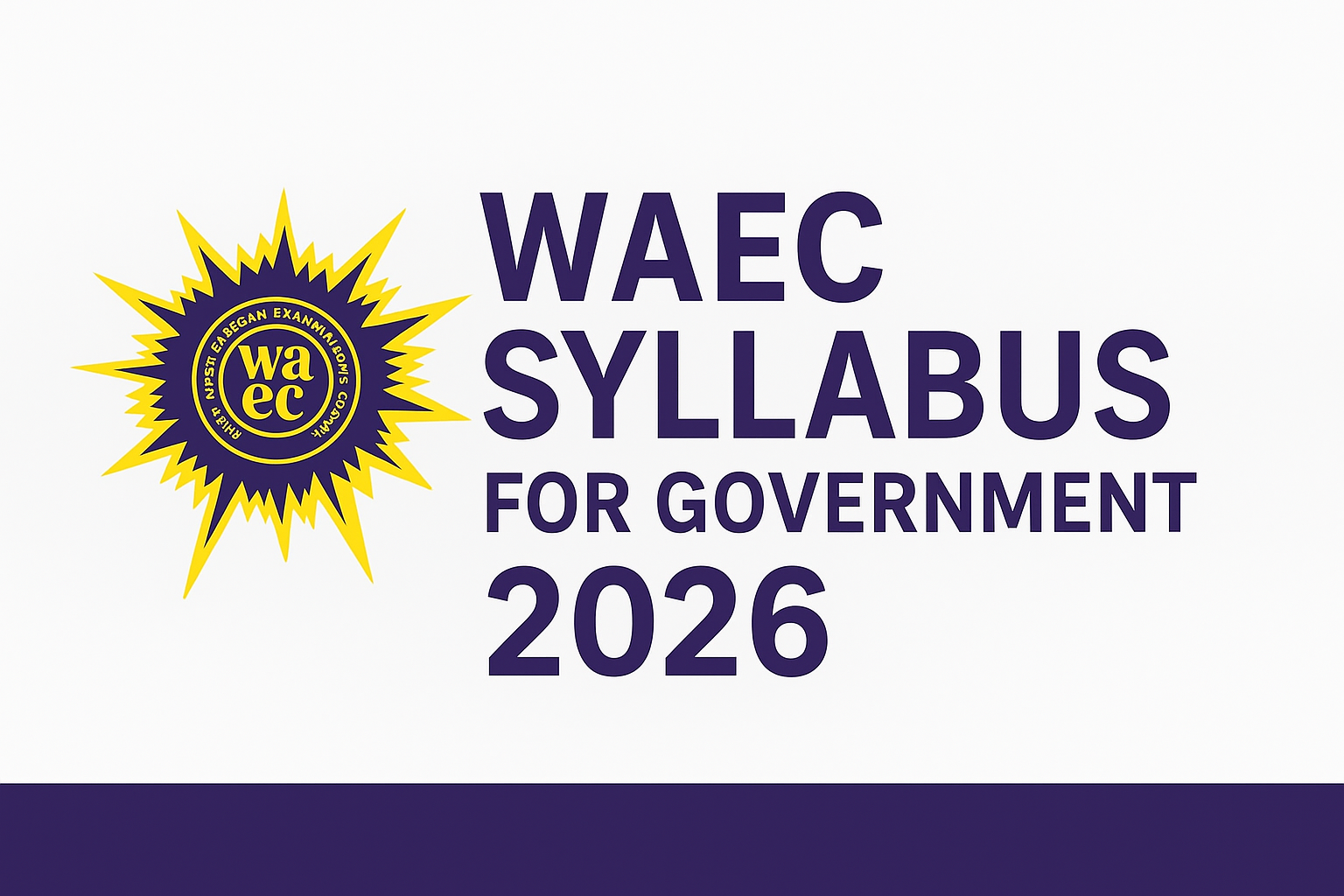If you’re preparing for the WAEC Government 2026 exam, the first and most important step is knowing exactly what WAEC expects you to study. Government is a subject that explains how a country is run, how leaders are chosen, and why political decisions affect everyday life.
This updated syllabus breaks everything into simple parts so you can study with confidence and avoid wasting time on unnecessary topics.
Why This Syllabus Matters
Using the WAEC syllabus is like having a map before starting a journey. It helps you:
- Understand the exact topics WAEC will set questions on
- Focus on what really matters
- Study with direction instead of confusion
- Build confidence as you revise
- Improve your chances of scoring A1
- Avoid reading irrelevant or outdated materials
When you follow the syllabus closely, studying becomes less stressful and more effective.
WAEC Government Syllabus 2026
The syllabus is divided into simple parts that explore political ideas, institutions, Nigeria’s political history, and events happening around the world today.
1. Elements of Government
This part introduces the basic ideas behind how governments work. You’ll learn:
- The meaning and scope of government
- Why government is important
- Power, authority, legitimacy, and sovereignty
- Forms of government like democracy and dictatorship
- Systems like capitalism, socialism, and mixed economy
- Political culture and socialisation
- Rights and duties of citizens
- Constitution and constitutionalism
In simple terms: This section teaches the foundation of politics.
2. Political Institutions
These are the structures that help a country to function.
You’ll study:
- The three arms of government
- Separation of powers
- Rule of law
- Civil service & public service
- Electoral bodies and electoral systems
- Political parties and pressure groups
- Traditional political institutions in Africa
Why it’s important: This section helps you understand how governments are organised and how leaders make decisions.
3. Political Processes
This deals with political activities and how citizens participate in governance.
Topics include:
- Elections and voting
- Public opinion
- Leadership and followership
- Political participation
- Party systems
Simple explanation: This part teaches how political ideas turn into real action.
4. Political Development in Nigeria
This section takes you through Nigeria’s journey from traditional societies to modern democracy.
It covers:
- Pre-colonial political systems
- Colonial rule and its impact
- Growth of nationalism
- Major constitutional developments
- Military rule in Nigeria
- The Fourth Republic
- Reforms in the civil service
Why this matters: Understanding Nigeria’s political history helps you answer many WAEC theory questions confidently.
5. Structure and Functions of Government in Nigeria
Here, you’ll learn how Nigeria operates as a federal nation.
Topics include:
- Federalism
- Local government administration
- Revenue allocation
- Intergovernmental relations
- Nigerian foreign policy
Simple explanation: This section shows how Nigeria’s different levels of government work together.
6. International Organizations
Government is not just about one country. WAEC expects you to know global bodies Nigeria belongs to.
You’ll study:
- UN
- AU
- ECOWAS
- OPEC
- Commonwealth
- NGOs
- International Court of Justice
Why this matters: Many exam questions come from the roles, problems, and achievements of these organizations.
7. Contemporary Political Issues
This part covers events shaping today’s world.
Topics include:
- Human rights issues
- Terrorism
- Corruption
- Electoral malpractice
- National integration
- Globalisation
- Environmental politics
Simple idea: WAEC wants you to relate political knowledge to real-life issues.
Related Posts:


Leave a Reply